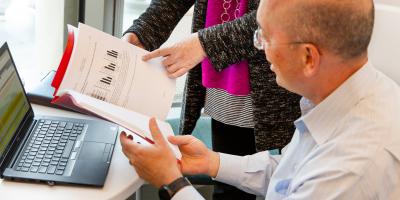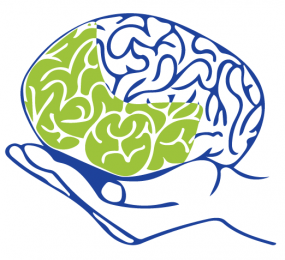

LEFFTDS: Longitudinal Evaluation of Familial Frontotemporal Dementia Subjects
LEFFTDS is an NIH-funded consortium studying genetic, familial forms of Frontotemporal Dementia (FTD). LEFFTDS aims to identify the most robust and reliable means to track disease progression in familial FTD so that disease-modifying therapeutic trials can be designed appropriately. Addtionally, LEFFTDS wants to identify early symptoms and predictive changes in people who potentially carry FTLD-associated genetic mutations. Identifying such changes could help with the development of therapies that intervene before the disease has progressed to a debilitating state.
Frontotemporal dementia (FTD) causes impairment in social function, personality changes, cognitive ability, language, and motor function.
Approximately 30-40% of all frontotemporal dementia (FTD) cases are due to genetic causes. LEFFTDS studies familial FTD caused by genetic variation in any of the three most common genes associated with frontotemporal dementia: microtubule associated protein tau (MAPT), granulin (GRN), and the chromosome 9 open reading frame 72 (C9orf72). LEFFTDS co-enrolls eligible participants from ARTFL; both studies share a common infrastructure and assessments.
LEFFTDS is an observational study of ~400 people who are members of families with known FTD gene mutations. If you participate in this study, you will you will have an evaluation of your memory and thinking skills and have a physical examination by a neurologist. You and your study partner will complete some questionnaires. You will be asked to have a sample of blood drawn. You will be asked to participate to have magnetic resonance imaging (MRI) of the brain and lumbar punctures to obtain cerebrospinal fluid (CSF). The study staff may look at your medical records so that we can collect information about your medical history. Participation in the study will take a total of about 8 hours over the course of a day or may be split into two to three days.
LEFFTDS and ARTFL (another observational study) share a common infrastructure and assessments; all people who are eligible for LEFFTDS (see below) are also eligible for ARTFL and we will ask you to enroll in both. LEFFTDS has 4 visits approximately annually over 5 years, allowing investigators to see how things change over several years and identify markers that might signal conversion to fully symptomatic disease.
To participate in LEFFTDS, you must:
- Be a member of a family with a known mutation in one of the three major FTLD related genes: MAPT, GRN or C9ORF72. You do not have to know your own genetic status, but you may choose to learn it through the study.
- Be at least 18 years of age.
- Be part of a family where the predominant phenotype in the family is cognitive/behavioral (i.e, families in whom parkinsonism or ALS is the predominant clinical phenotype among affected relatives may be excluded)
- Have a reliable informant who personally speaks with or sees that subject at least weekly.
- Be sufficiently fluent in English to complete all measures
- Be willing and able to consent to the protocol and undergo yearly evaluations over 3-5 years.
- Be willing and able to undergo neuropsychological testing (at least at baseline visit).
- Be able to have MRI scans (e.g. not suffer from claustrophobia or have a pacemaker.
You are not able to participate if:
- You have a known brain lesion such as a tumor or cortical infarct.
- You have another neurological disorder that could impact findings (such as MS).
- You are unwilling to return for follow-up yearly, undergo neuropsychological testing and MR imaging.
- You have no reliable study partner/informant.